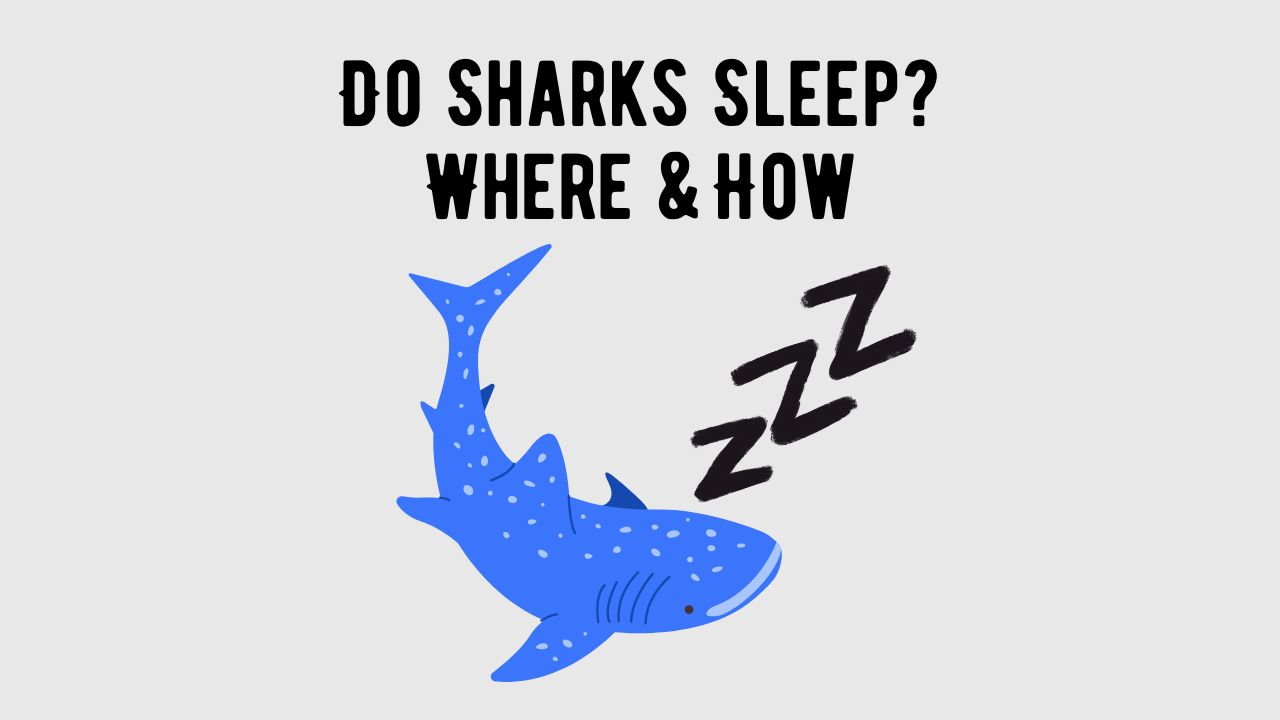Sharks do not sleep in the same way that mammals do, as they lack eyelids and do not experience REM (rapid eye movement) sleep. However, sharks exhibit periods of rest or reduced activity, which can be considered a state of restfulness. The specifics of how and where sharks rest can vary among species. Here are some key points about shark rest behavior:
1. Resting Behavior:
- Sharks often engage in a state of reduced activity, sometimes referred to as “resting” or “lazing.”
- During these periods, sharks may slow down their swimming and become less responsive to stimuli.
2. Breathing During Rest:
- While resting, sharks continue to move water over their gills to extract oxygen. Unlike bony fish, sharks lack a swim bladder, and their buoyancy is maintained by their oily liver.
3. Locations for Resting:
- Reef Areas: Some species, especially reef-associated sharks, may rest in crevices or on the ocean floor near coral reefs. This behavior can help them conserve energy.
- Open Water: Pelagic species, such as the oceanic whitetip shark, may engage in drifting or slow swimming in open water as a form of rest.
4. Nocturnal Activity:
- Some sharks, like the nurse shark, are more active during the night and rest during the day. This nocturnal behavior may be related to hunting patterns and avoiding predators.
5. Resting Durations:
- The duration of rest periods can vary among species. Some sharks may rest for short intervals, while others may engage in longer periods of reduced activity.
6. Resting to Digest:
- After a meal, sharks may rest to aid in the digestion process. This is particularly true for species that consume larger prey.
7. Environmental Factors:
- Environmental factors, such as water temperature, salinity, and prey availability, can influence when and where sharks choose to rest.
8. Unihemispheric Slow-wave Sleep (USWS):
- Sharks, along with some other marine animals like dolphins, exhibit a phenomenon known as unihemispheric slow-wave sleep (USWS). This means that one hemisphere of the brain is active while the other rests. This allows them to maintain awareness of their surroundings and potential threats.
9. Resting in Aquariums:
- Sharks in captivity, such as those in aquariums, may display different resting behaviors. They may find sheltered areas or corners in the tank where they can rest.
1. Do Sharks Still Swim When They Sleep?
- Yes, many species of sharks exhibit a phenomenon known as “sleep-swimming” or “sleeping on the move.” During periods of rest, sharks may continue to swim slowly. This is often referred to as unihemispheric slow-wave sleep (USWS), where one part of the brain rests while the other remains active. It allows sharks to maintain awareness of their surroundings and potential threats.
2. Do Sharks Ever Stop Moving?
- While some species of sharks, like reef-associated sharks, may rest on the ocean floor or in crevices, most sharks have to keep moving to breathe. Sharks rely on a process called “ram ventilation” to pass water over their gills, extracting oxygen. If a shark were to stop swimming entirely, it might compromise its ability to breathe.
3. What Do Sharks Do Instead Of Sleeping?
- Instead of traditional sleep, sharks engage in periods of reduced activity. They may rest in sheltered areas, near the ocean floor, or exhibit slow swimming. During these times, they are still alert to their environment and potential prey or predators.
4. What Do Sharks Do All Day?
- The daily activities of sharks vary based on species, habitat, and feeding habits. Sharks may spend their days hunting, patrolling territories, or resting in areas that provide cover. Nocturnal species may be more active during the night.
5. How Do Sharks Sleep Without Sinking?
- Sharks have a specialized liver that is rich in oil, providing buoyancy. Even when they reduce their swimming speed or rest on the ocean floor, the oil in their liver helps prevent them from sinking.
6. Why Do Sharks Need To Sleep?
- While sharks don’t sleep in the same way mammals do, periods of reduced activity or rest are essential for conserving energy and allowing the sharks to recover from physical exertion. It also provides them with the opportunity to digest food.
7. Do Sharks Sleep With Their Eyes Open?
- Sharks lack eyelids, so they don’t close their eyes in the way mammals do. However, during periods of rest, their eyes may appear less responsive to stimuli. The lack of traditional sleep allows them to remain vigilant to their surroundings.
Understanding shark behavior, including their patterns of rest and activity, is crucial for marine biologists and conservationists. It helps in the conservation efforts and better management of these important marine predators.
Summary
It’s important to note that the understanding of shark behavior, including resting patterns, is an evolving field of study. The ability to observe sharks in their natural habitats presents challenges, and much of the information comes from a combination of field observations, studies in controlled environments, and advances in technology like underwater cameras. A combination of physiological, ecological, and environmental factors likely influences the resting behavior of sharks.
